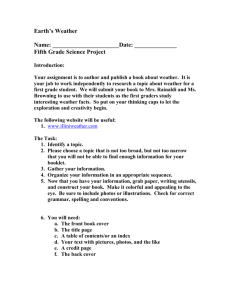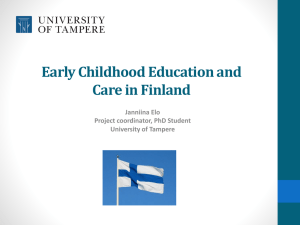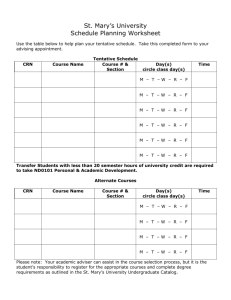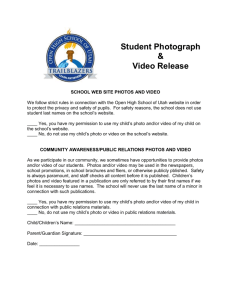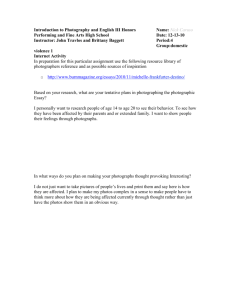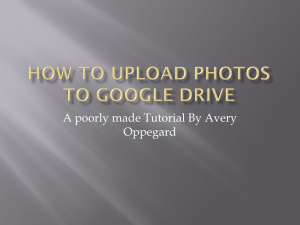Playful Pedagogy Playful Pedagogy
advertisement
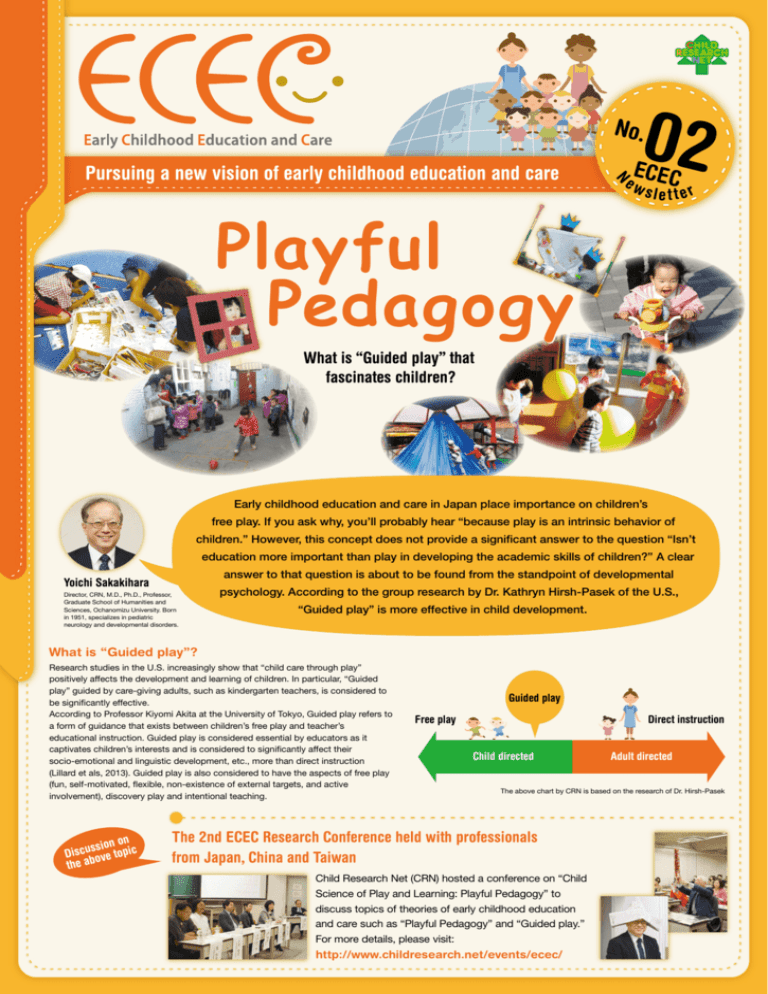
02 No. Playful Pedagogy E e w CEC sle t t er N Pursuing a new vision of early childhood education and care What is “Guided play” that fascinates children? Early childhood education and care in Japan place importance on children’s free play. If you ask why, you’ll probably hear “because play is an intrinsic behavior of children.” However, this concept does not provide a significant answer to the question “Isn’t education more important than play in developing the academic skills of children?” A clear answer to that question is about to be found from the standpoint of developmental Yoichi Sakakihara Director, CRN, M.D., Ph.D., Professor, Graduate School of Humanities and Sciences, Ochanomizu University. Born in 1951, specializes in pediatric neurology and developmental disorders. psychology. According to the group research by Dr. Kathryn Hirsh-Pasek of the U.S., “Guided play” is more effective in child development. What is “Guided play”? Research studies in the U.S. increasingly show that “child care through play” positively affects the development and learning of children. In particular, “Guided play” guided by care-giving adults, such as kindergarten teachers, is considered to be significantly effective. According to Professor Kiyomi Akita at the University of Tokyo, Guided play refers to a form of guidance that exists between children’s free play and teacher’s educational instruction. Guided play is considered essential by educators as it captivates children’s interests and is considered to significantly affect their socio-emotional and linguistic development, etc., more than direct instruction (Lillard et als, 2013). Guided play is also considered to have the aspects of free play (fun, self-motivated, flexible, non-existence of external targets, and active involvement), discovery play and intentional teaching. on ssion Discu ove topic the ab Guided play Free play Direct instruction Child directed Adult directed The above chart by CRN is based on the research of Dr. Hirsh-Pasek The 2nd ECEC Research Conference held with professionals from Japan, China and Taiwan Child Research Net (CRN) hosted a conference on “Child Science of Play and Learning: Playful Pedagogy” to discuss topics of theories of early childhood education and care such as “Playful Pedagogy” and “Guided play.” For more details, please visit: http://www.childresearch.net/events/ecec/ Notice Introducing Early Childhood Education and Care through Photos Send us photos recounting your experiences and stories of your facilities CRN’s project “Introducing Early Childhood Education and Care through Photos” is one part of its research on ECEC. The new project will collect and show as many photographs as possible of actual facilities and their activities as a way of disseminating the best practices of early childhood education and care around the world. Example of photos In this project, we will collect photographs showing scenes that aim to develop children’s independence. Examples: ・Entrance of kindergarten / day-care center ・Arranging picture books and toys ・Playground ・Seasonal activities and events ・The scene of children playing together Please send us photos and reports with helpful information and improvements that you have implemented at your kindergarten / day-care center. able n enjoy ating a urages o c n By cre that e t n e ate, we m articip p environ ly e iv t n’s n to ac childre n childre evelop d teractio o t in aim foster d n . a s e e nt ag ndenc differe indepe ers of e p h it w If interested in this project, please send us an email with your general information including the name and address of your facility as well as the number of children attending, with photographs (up to five JPG files) and explanations (up to around 80 words per photo) to the following email address: crninfo@crn.or.jp ◎ Child Research Net (CRN) may publish your photos on its website. ◎ When published, your photos will appear with comments from professionals of early childhood education and care. We are waiting for your photos! ◆Please note when sending your photos: ・Your photos and reports should be taken/written at your facility and must not infringe on third party rights. ・Please obtain consent from all persons (or their guardians, if they are under 18) depicted in the photos before sending them. ・We may edit your photos and reports before publishing them based on our editorial policy. ・We may publish your photos and reports on our website (Japanese, English and Chinese versions) after translating your reports into Japanese or Chinese. ・Please understand in advance that submitted photos will not be returned. What is ECEC? ECEC stands for Early Childhood Education and Care. Recognizing ECEC as a key concept for a new mode of early childhood education and care, Child Research Net (CRN) is launching ECEC studies. Note: ECEC is also referred by other terms such as ECCE and ECD. Editorial postscript For children, everyday play is filled with learning; this idea is both a fresh perspective and one that is readily convincing. Through the activities of CRN, I, as a parent and adult, hope to discover and nurture children’s potential as it develops day by day. (Junko Ogawa) Children have unlimited potential. They develop skills through fun-filled play every day. As a parent, I also hope to create such an ideal environment. I look forward to exploring with all of you from around the world the way to realize such an ideal environment from a scientific standpoint. (Aiping Liu) CRN Profile Director: Yoichi Sakakihara (Professor, Graduate School, Ochanomizu University) Honorary Director: Noboru Kobayashi (Professor Emeritus, University of Tokyo; President Emeritus, National Children’s Hospital) Special Advisor: Takemochi Ishii (Professor Emeritus, University of Tokyo) Coordinators: Aiping Liu, Junko Ogawa (Benesse Educational Research and Development Institute) Location: c/o Benesse Corporation, 1-34, Ochiai, Tama-shi, Tokyo 206-8686, Japan Child Research Net is an international and interdisciplinary internet-based child research institute, operated with the support of Benesse Corporation. Issued date: January 10, 2014 http://www.childresearch.net/ ECEC03-EN
